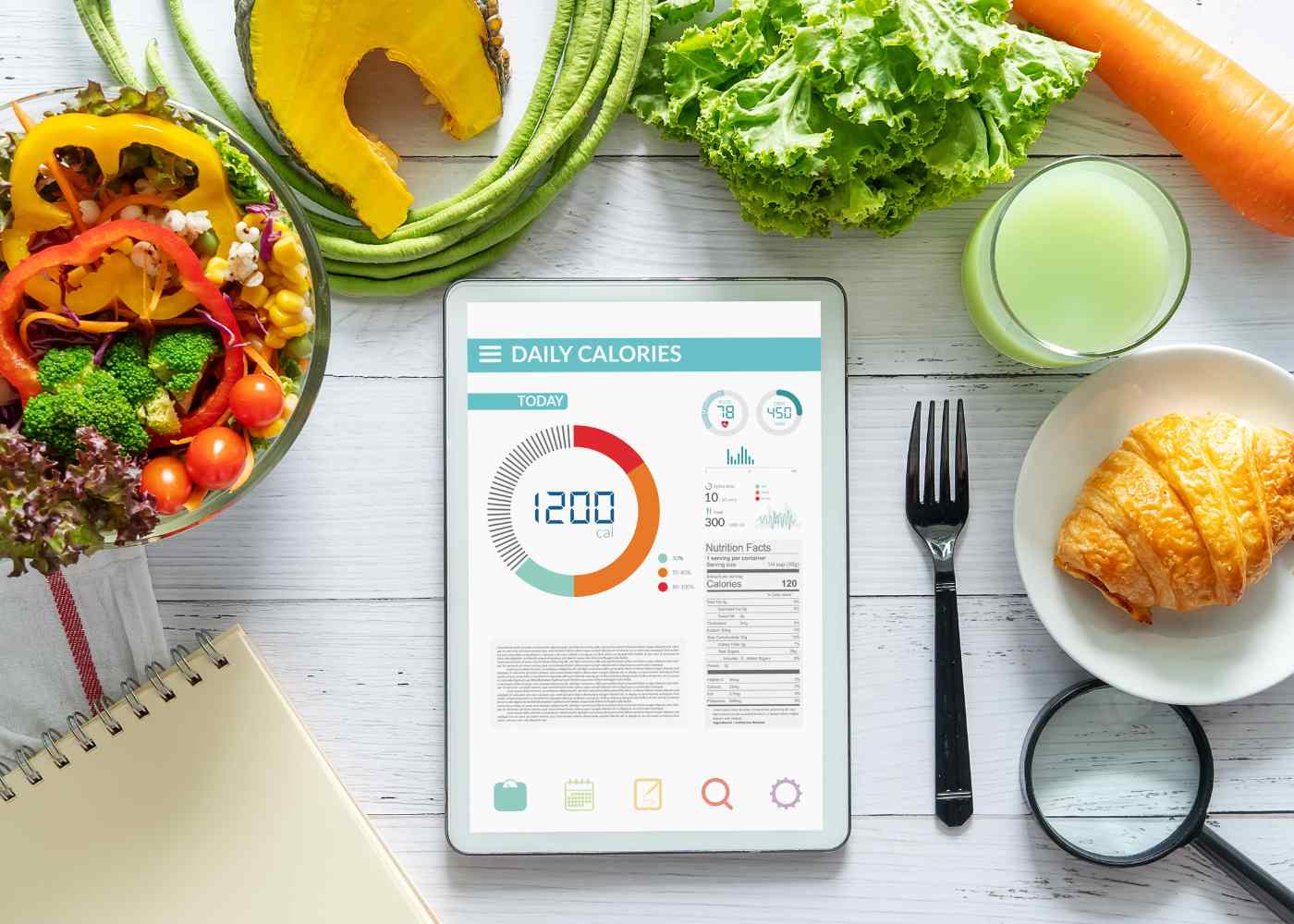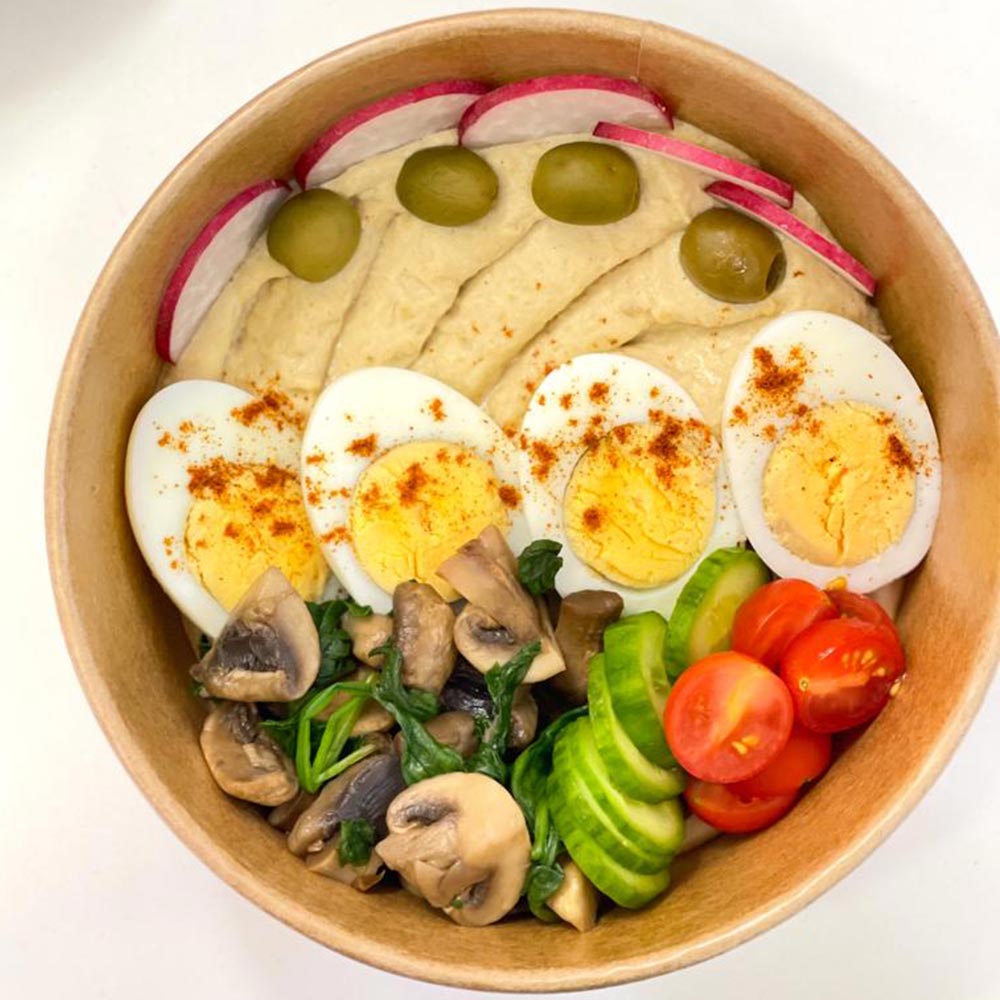Creating a weight loss meal plan can be challenging, but it can also help you achieve your health and fitness goals. If you are just starting your weight loss journey and are looking for some guidance on creating an effective meal plan, you've come to the right place. In this post, we will provide you with all the information you need to understand the basics of weight loss, set realistic goals, build a balanced and nutritious meal plan, incorporate the right foods for weight loss, meal prep and portion control tips, stay motivated and consistent with your meal plan, and seek professional guidance and support. By the end of this post, you will be well-equipped to create a meal plan that suits your needs and supports your weight loss goals. So let's get started!

Understanding the Basics of Weight Loss
When it comes to creating the best weight loss meal plans
for beginners, it's important to first understand the basics of weight loss. By
familiarizing yourself with the essential principles, you can lay a solid
foundation for your journey towards a healthier and fitter you.
Importance of understanding calories and metabolism
Calories play a crucial role in weight loss. To shed those
extra pounds, you need to consume fewer calories than you burn. Understanding
your metabolism is also key - it determines how efficiently your body converts
food into energy. Knowing your daily calorie needs and how your metabolism
functions will help guide your meal planning efforts.
Different types of weight loss diets
There are various types of weight loss diets to choose from,
such as low-carb, ketogenic, paleo, and Mediterranean. Each diet has its unique approach to calorie intake and food choices. Take the time to research
and find a diet that suits your preferences and aligns with your health goals.
How exercise contributes to weight loss
While a healthy diet is essential for weight loss, exercise also plays a significant role. Regular physical activity helps burn calories, builds muscle, and boosts metabolism. Incorporating exercise into your weight loss journey will enhance your results and improve your overall well-being.

Setting Realistic Goals for Your Weight Loss Journey
Setting realistic goals is crucial for a successful weight
loss journey. By establishing achievable targets, you can stay motivated and
focused. Here are some benefits of setting realistic goals:
1. Increased confidence: Setting attainable goals helps
build confidence as you achieve them one by one.
2. Long-term success: Unrealistic goals can lead to
frustration and abandonment of your weight loss plan. Realistic goals allow for
steady progress and sustainable weight loss.
3. Improved mindset: Realistic goals help shift your
mindset from short-term fixes to long-term lifestyle changes.
How to set achievable goals:
Follow these tips to set goals that you can reach:
1. Be specific: Instead of saying "I want to lose
weight," specify how much weight you want to lose and by when.
2. Break it down: Divide your ultimate weight loss goal
into smaller, incremental goals. This way, you can celebrate small victories
along the way.
3. Make it measurable: Track your progress using
measurements, such as pounds lost or inches reduced.
4. Keep it realistic: Consider your current lifestyle,
commitments, and responsibilities when setting goals. Avoid setting unrealistic
expectations that may hinder your progress.
5. Set a time frame: Establish a timeline to achieve your
goals. This adds a sense of urgency and accountability.
Remember, weight loss is a journey, not a destination. Track your progress regularly and adjust your goals when necessary.

Building a Balanced and Nutritious Meal Plan
When it comes to weight loss, having a balanced and
nutritious meal plan is essential. It ensures that your body receives all the
necessary nutrients while also helping you achieve your weight loss goals. Here
are some tips on how to build a meal plan that is both balanced and nutritious:
Importance of a Balanced Meal Plan
A balanced meal plan includes foods from all food groups, providing
a variety of nutrients to support your overall health. This includes fruits,
vegetables, lean proteins, whole grains, and healthy fats. Each food group
plays a crucial role in maintaining a healthy weight and providing the energy
you need for daily activities.
How to Incorporate All Food Groups
To ensure you're incorporating all food groups into your
meal plan, aim to have a serving of fruits and vegetables with every meal.
Include lean proteins, such as chicken breast, fish, or tofu, in your main
dishes. Opt for whole-grain options like brown rice, whole wheat bread, and
quinoa. Include healthy fats like avocado, nuts, and olive oil in your meals as
well.
Tips for Meal Planning on a Budget
Meal planning can be cost-effective if done right. Look for
sales and discounts at your local grocery store and plan your meals
accordingly. Buy seasonal produce, as it tends to be cheaper. Utilize
affordable protein sources like beans, lentils, and eggs. Experiment with
different recipes using affordable ingredients to create delicious and
nutritious meals.
Tip: Don't forget to include snacks in your meal plan! Healthy snacks, such as yoghurt, fruits, or nuts, can help curb cravings and keep you satisfied between meals.

Incorporating the Right Foods for Weight Loss
When it comes to weight loss, choosing the right foods is
essential. Here are some key tips for incorporating the right foods into your
meal plan:
• Foods that promote weight loss
• Include plenty of fruits and vegetables in your diet. They
are low in calories and high in essential nutrients.
• Incorporate lean proteins such as chicken, turkey, fish,
tofu, and beans. They keep you full and help build muscle.
• Choose whole grains like brown rice, quinoa, and whole wheat
bread instead of refined grains.
• Include healthy fats in moderation, like avocados, nuts, and
olive oil. They provide satiety and support brain function.
Importance of portion control
• While choosing the right foods is important, portion control
is equally crucial for weight loss. Here's how to practice portion control:
• Measure your food using measuring cups or a food scale. This
helps in keeping track of calories and serving sizes.
• Avoid eating straight out of the package. Portion your food
into smaller bowls or plates to prevent overeating.
• Listen to your body's hunger and fullness cues. Stop eating
when you feel satisfied, not stuffed.
• Consider using smaller plates and bowls to visually trick
your mind into thinking you're eating more.
Substituting unhealthy foods with healthier alternatives
• Replacing unhealthy food choices with healthier alternatives
can make a significant impact on your weight loss journey. Here are some ideas:
• Swap sugary beverages with water, unsweetened tea, or
infused water.
• Choose air-popped popcorn instead of chips or snacks high in
saturated fat.
• Opt for Greek yoghurt with fresh fruits instead of sugary
yoghurt with added sweeteners.
• Enjoy baked or grilled chicken instead of fried chicken.
By incorporating the right foods into your meal plan, practicing portion control, and making healthier substitutions, you'll be on track to achieve your weight loss goals.

Meal Prepping and Portion Control Tips
Meal prepping is a fantastic way to stay on track with your
weight loss journey. By preparing your meals in advance, you can avoid the
temptation of grabbing unhealthy takeout or reaching for convenient but
high-calorie snacks. Here are some tips on how to meal prep effectively and
incorporate portion control:
Benefits of Meal Prepping
Meal prepping saves time, reduces decision fatigue, and
helps you make healthier choices. By prepping your meals in advance, you have
control over the ingredients and portion sizes, making it easier to stick to
your weight loss goals.
How to Portion Control Effectively
Portion control plays a crucial role in weight loss. Here
are some tips to help you portion control effectively:
• Use smaller plates and bowls to visually trick your mind
into thinking you're consuming a larger portion.
• Measure and weigh your food to ensure accurate portion
sizes.
• Fill half of your plate with non-starchy vegetables,
one-quarter with protein, and the remaining quarter with whole grains or
healthy carbohydrates.
• Avoid second servings, and take your time to chew and savor
each bite.
• Listen to your body's hunger and fullness cues instead of relying on external cues or finishing everything on your plate.

Tips for Meal Prepping on a Busy Schedule
Even with a busy schedule, meal prepping is still
achievable. Here are some tips to help you meal prep effectively:
• Plan your meals and create a grocery list before heading to
the store.
• Choose recipes that can be easily batch-cooked and reheated.
• Invest in quality, reusable food containers for storing your
prepped meals.
• Select a specific day or time each week to dedicate to meal
prepping.
• Consider using kitchen appliances like slow cookers or
instant pots to simplify the cooking process.
• Opt for versatile ingredients that can be used in multiple
meals throughout the week.
By implementing these meal-prepping and portion-control
tips, you'll be well on your way to creating and maintaining the best weight
loss meal plan for beginners.
Staying Motivated and Consistent with Your Meal Plan
As you embark on your weight loss journey, staying motivated
and consistent with your meal plan is crucial for long-term success. Here are
some tips to help you stay on track:
Importance of staying motivated
Motivation is the driving force behind any successful
endeavor, including weight loss. Remind yourself of the reasons why you want to
shed those pounds - whether it's to improve your health, boost your confidence,
or have more energy.
One effective way to stay motivated is by setting smaller,
actionable goals. Celebrate each achievement, no matter how small, as it will
keep you motivated and focused on your ultimate weight loss goals.
How to overcome setbacks and stay consistent
Everyone faces setbacks on their weight loss journey. It's
important to approach them with a positive mindset and treat them as learning
opportunities instead of failures.
When you face a setback, acknowledge it, learn from it, and
move on. Avoid dwelling on the setback and let go of any guilt or self-blame.
Instead, focus on the progress you've made and the steps you can take to get
back on track.
Consistency is key when it comes to weight loss. Stick to
your meal plan as much as possible, even on weekends or special occasions. It's
okay to indulge occasionally, but staying consistent in your healthy eating
habits will help you reach your goals faster.
Rewarding yourself for reaching milestones
It's important to reward yourself for your efforts and milestones
achieved along the way. However, avoid using food as a reward. Instead, treat
yourself to non-food related rewards such as a spa day, a new workout outfit,
or a relaxing massage.
Set milestones for yourself - whether it's losing a certain
amount of weight, fitting into a specific clothing size, or sticking to your
meal plan consistently for a month. When you reach these milestones, celebrate
your achievements and reward yourself for your hard work and dedication.
Remember, staying motivated and consistent with your meal plan is a journey in itself. Be patient with yourself, stay positive, and keep your eyes on the prize - a healthier and happier you!

Seeking Professional Guidance and Support
While creating a weight loss meal plan for beginners can be
done on your own, seeking professional guidance and support can greatly enhance
your chances of success.
Various types of professionals can assist you
with your weight loss journey. Registered dietitians or nutritionists can
provide personalized guidance and help you create a meal plan that aligns with
your specific needs and goals. They can also educate you on proper portion
sizes, and food choices, and answer any questions you may have.
In addition to dietitians and nutritionists, you may also
consider seeking support from fitness trainers or exercise physiologists. These
professionals can design an exercise program that complements your meal plan
and helps accelerate your weight loss. They can provide proper guidance on form, and technique, and create a workout routine tailored to your fitness level.
Lastly, finding support groups and online communities can
provide you with a sense of community and accountability. Joining a weight loss
support group or an online forum allows you to connect with others who are on a
similar journey. You can share your experiences, seek advice, and find
motivation in the success stories of others.
Remember, seeking professional guidance and support is not a sign of weakness, but rather a smart decision on your weight loss journey. These professionals can provide valuable knowledge, expertise, and ongoing support that can help you achieve your goals healthily and sustainably.

Conclusion
Creating the best weight loss meal plans for beginners can
seem overwhelming, but with the right knowledge and guidance, it can be a
manageable and rewarding journey. By understanding the basics of weight loss,
setting realistic goals, building a balanced and nutritious meal plan,
incorporating the right foods, practicing meal prepping and portion control,
and staying motivated and consistent, you can achieve your weight loss goals.
Remember to stay patient and be kind to yourself throughout
this process. Weight loss takes time and effort, but it is worth it. Seek professional
guidance and support if needed, as they can provide expert advice and valuable
resources. Additionally, finding support groups and online communities can
offer encouragement, motivation, and a sense of belonging.
So, take the first step towards creating the best weight
loss meal plans for beginners and start your journey with confidence. Your
health and well-being are worth investing in, and with the right strategies and
mindset, you can achieve sustainable and long-lasting weight loss.






























